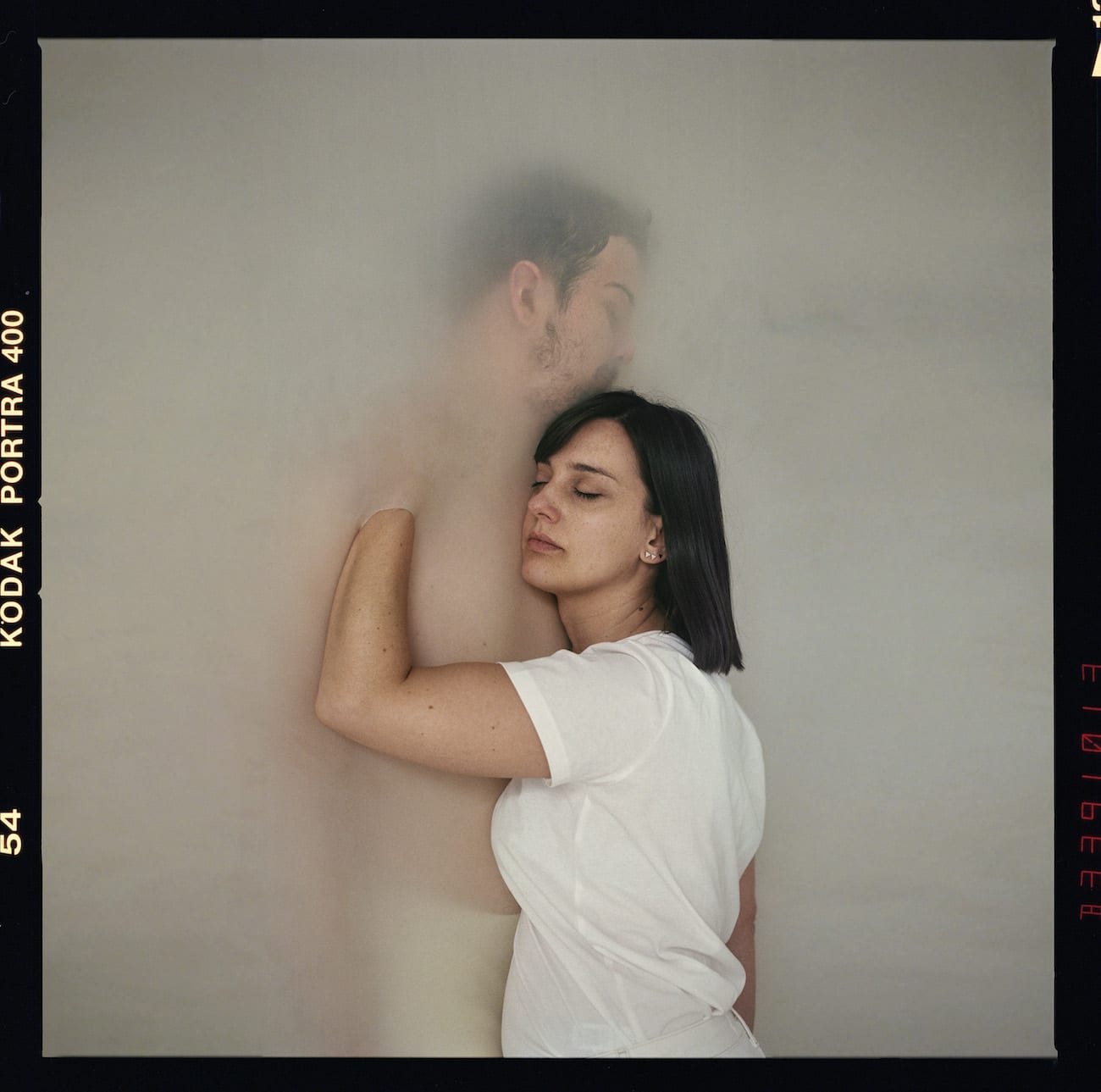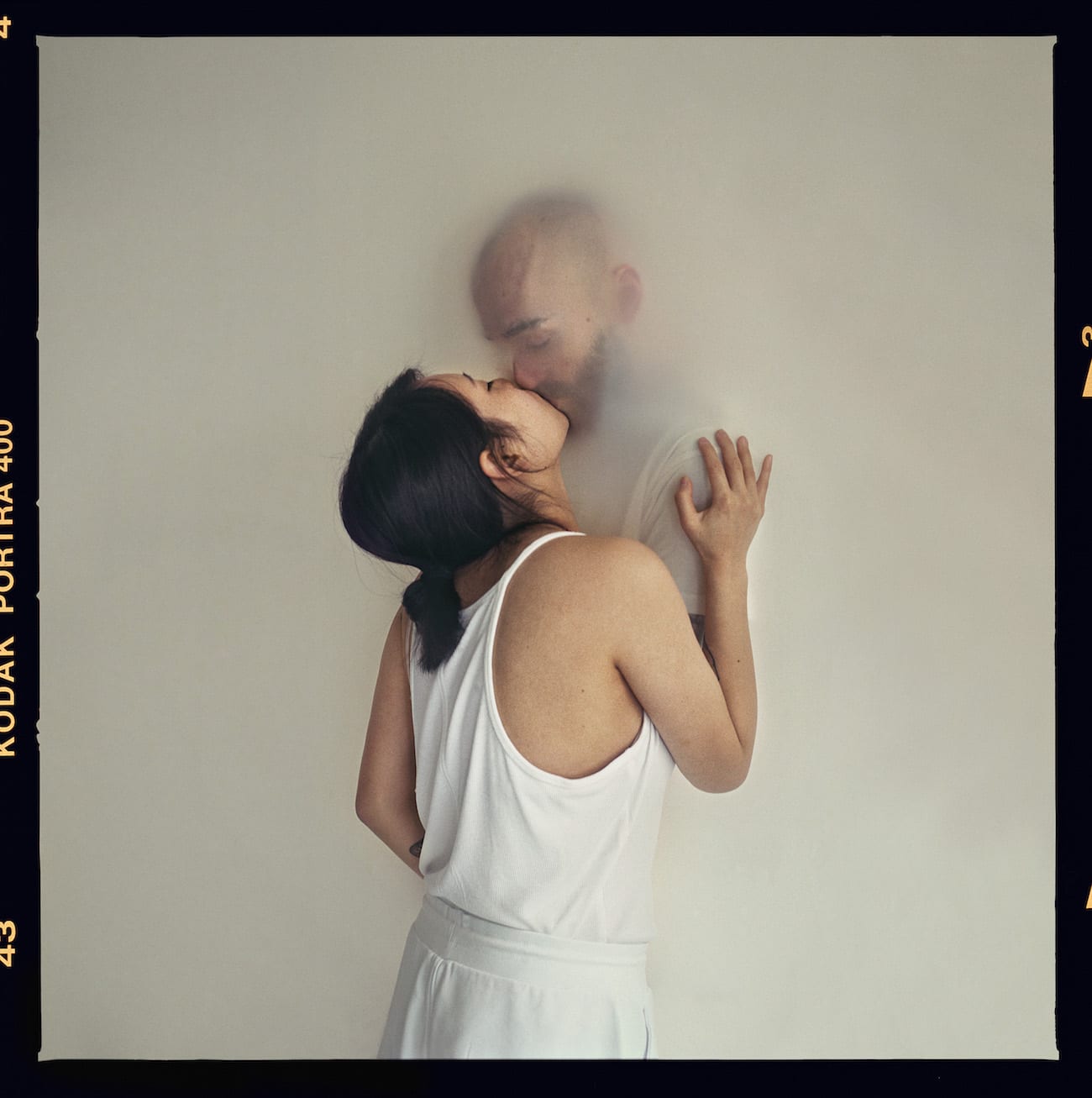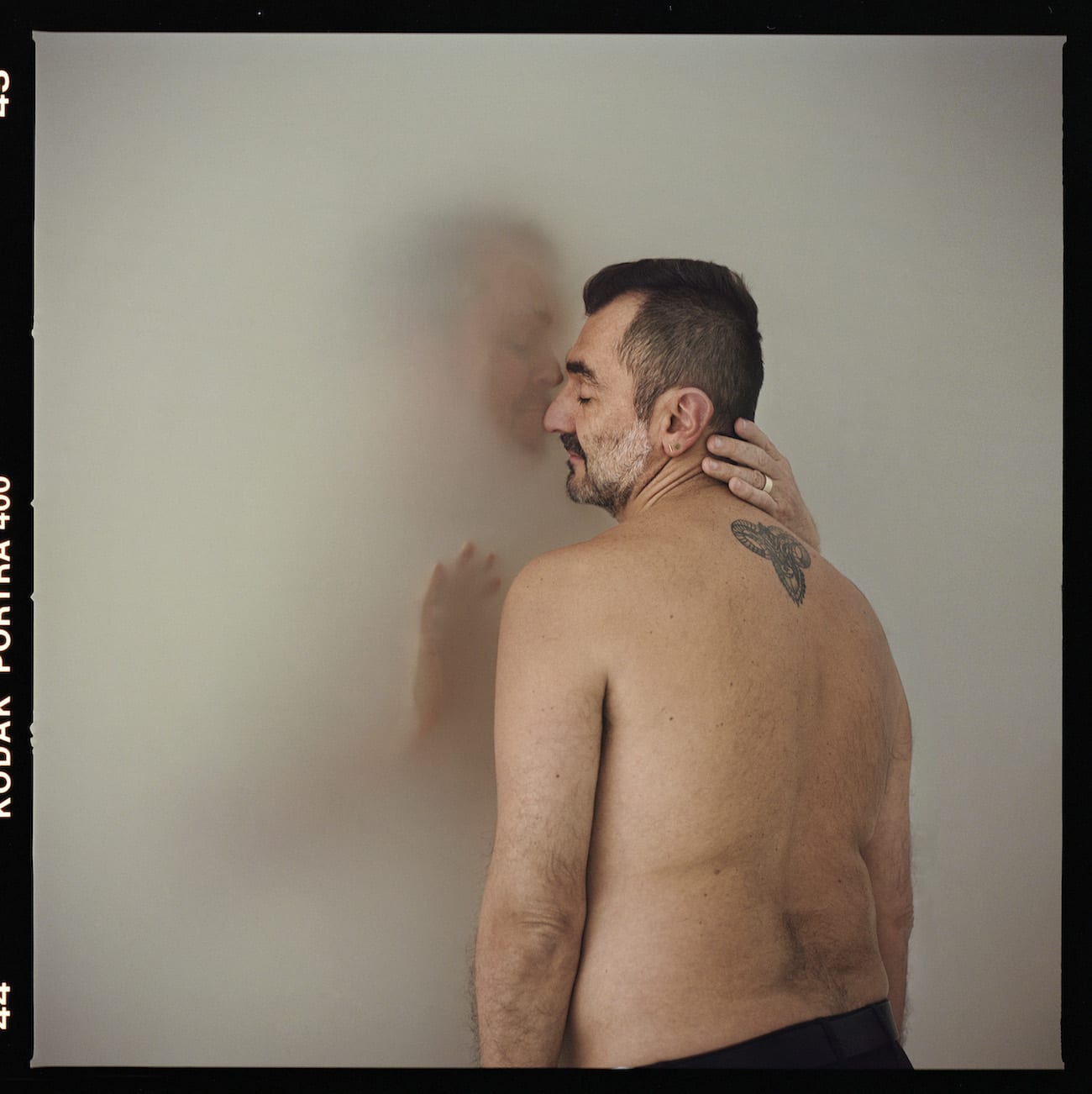On 23 June 2016, the UK narrowly voted to leave the European Union. The break-up has been far from harmonious and, almost two years since the referendum, the exact ramifications of Brexit remain unclear.
Separation, a portrait series by Laura Pannack, explores this uncertainty on a human level. Commissioned by British Journal of Photography and created with Affinity Photo for iPad, the series captures the angst and myriad emotions experienced by London-based creative couples who, as a result of Brexit, have been forced to contemplate separation. Brexit has long garnered column inches for its political implications but what does it mean for love?
Of the couples that feature in Separation, one half of each is British and the other has moved to the UK from elsewhere in Europe. At least one works in London’s creative sector, a diverse and thriving industry that has long been a draw for Europeans moving to the capital. The subjects of Separation are real couples who, at the hands of Brexit, now face an uncertain future together. Emotion therefore exists at the core of Pannack’s portraits.
Over the course of this week, BJP will publish photographs from the series alongside candid reflections from each of the couples.
–
Giulia and Stuart
Communications manager, digital consultant and sound artist
“We were planning to get married at some point in the future but the referendum result hurried us along”

Giulia is Italian and Stuart is British. The couple met at work. “We spent the first six months of our relationship trying to keep it secret from our colleagues. In the morning Stuart would drop me off at the back entrance to the office,” says Giulia, who moved to the UK from Italy over 10 years ago. “We later discovered that everyone had known all along. It was the worst-kept secret.” The couple used to live in London but recently relocated to Oxford. Stuart still works in the capital and commutes to and from it every day.
Giulia: Brexit was devastating. Stuart changed jobs so he could work on the Remain campaign in the digital creative team. The experience of facing a majority Leave vote, after six months of working 12-hour days, was indescribable. I have felt different in the UK since the referendum result was announced, and markedly less welcome. I moved to the UK straight after graduating through a six-month work placement, ironically funded by the European Union. Six months quickly became one year, and here I am ten years later.
We were planning to get married at some point in the future but Brexit hurried us along. We got married six months ago in the hope that it would provide extra security in the UK for me, and also so Stuart could start applying for Italian citizenship. We are both actively looking for jobs in Italy so we can move there as soon as possible. Ideally we want to be out of the country by the time Brexit has had full effect.
–
Mirjami and Adam
Graphic designer, support worker
“When Brexit happened, I took it personally. I come from an immigrant family and had been exposed to racism and stereotyping throughout my childhood. After the Brexit vote, I felt that same feeling I had felt as a kid”

Mirjami is Finnish and Adam is British. The couple met on Tinder. “I think we both swiped right because I had cats in my photos and he had ‘cat lover’ in his profile description,” says Mirjami. The couple spent their first date drinking wine in a carpark in Hackney Wick, a mutual decision after both complained about how expensive the area was. “On our fourth date, I stayed over at Adam’s house and found his old travelling journal,” says Mirjami. “I read it aloud, in front of him, and it turns out, 80 percent of what he wrote was about eating chicken nuggets. I think I fell in love there and then. Adam was apparently attracted to my bluntness and morbid sense of humour. We just complemented each with our quirks.” Adam and Mirjami have been a couple for two and a half years. They now live together in Walthamstow with their feline companion Tofu.
Mirjami: When Brexit happened, I took it personally. I come from an immigrant family and had been exposed to racism and stereotyping throughout my childhood. I was born in Finland but my parents are Chinese so I’ve always felt like an outsider. When I moved to London, I felt like everyone came from elsewhere for the first time; everyone looked different, everyone felt like they belonged. That made me feel like I belonged here too.
After the Brexit vote, I felt that same feeling I had felt as a kid, like I’m not wanted and I’m just a nuisance to the locals. That made me bitter and angry and I felt this massive gap between me and British people. As Adam himself is British, sometimes I felt that gap between us too, even though he did not feel the same way. Adam also resented the referendum result, but he has always remained nonchalant in his belief that it won’t have any bearing on our relationship and future.
–
Giacomo and Glenn
Picture library manager, primary school teacher
“We both came to London because of its positive and progressive attitude towards being gay”

Giacomo is Italian and Glenn is British Australian. They live in Shoreditch together with their abyssinian cat. “As cheesy as it sounds, it was love at first sight,” says Giacomo. “When we met up there was no expectations – dating websites are mostly used for quick hook-ups – but against all odds we fell in love. After 11 years we are still together.” Glenn and Giacomo’s love of the capital is deeply personal. “We both came to London because of its positive and progressive attitude towards being gay,” says Giacomo. In 2017, the year that marked the 50th anniversary of decriminalisation of homosexuality in the UK, Glenn and Giacomo got married.
Giacomo: When we heard the results of the EU referendum we felt betrayed. It was as if a curtain had been lifted and we could now see Britain’s true colours. Brexit made us feel as if the UK is not as tolerant, welcoming, or open minded as we had believed that it was. Perhaps we were lucky, and blind to this, because we live in London, but we always thought that the richness and uniqueness of England was in part due to its multicultural society. I thought British people valued European immigrants and how they contribute to the development of the economy and society. But, with the results of the referendum, we felt undervalued and deceived.
We are married, but applying for a British Passport is very costly and requires hundreds of documents and forms that frighten me. One of the most disappointing things is that my husband will not be able to live in Italy with me, or any other European country. That right has been taken away from him. Against our wishes, we have had to abandon our plans for the future, which we made before Brexit, as it is very unlikely that we will be able to live and travel freely between European countries.
–
Over the course of this week, portraits from Separation will be published on British Journal of Photography. See the next instalment tomorrow.
Credits. Photographer: Laura Pannack. Assistant: Jacob Schühle Lewis. Junior assistant: James Greenhalgh (winner of the Separation competition to shadow Pannack on-shoot). Editorial: Anya Lawrence. Set: Karina Valentim. Studio: Street Studios. Equipment: Direct Digital. Software: Affinity Photo for iPad.
Separation is a British Journal of Photography commission created with Affinity Photo for iPad, Apple’s App of the Year 2017. Please click here for more information on sponsored content funding at British Journal of Photography.

